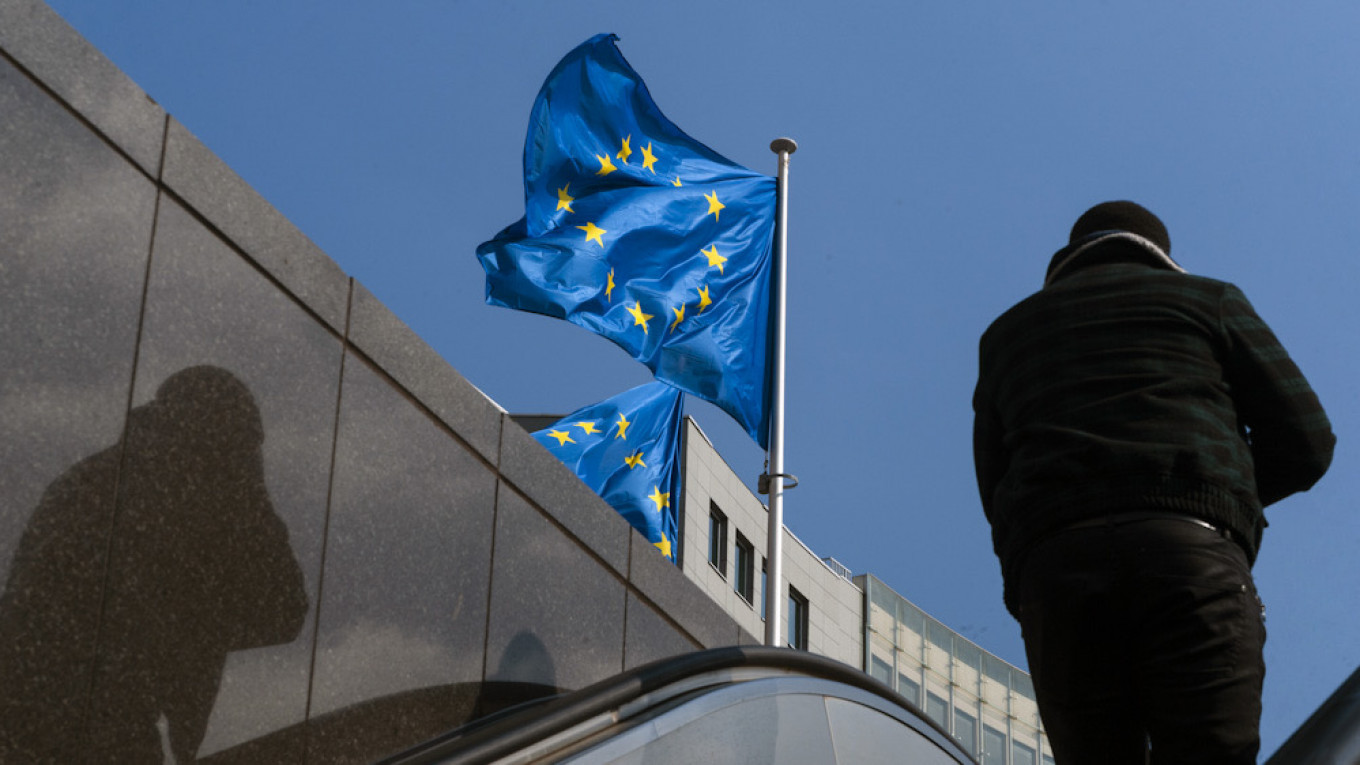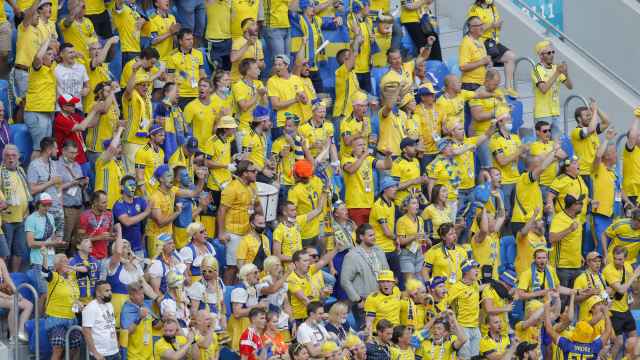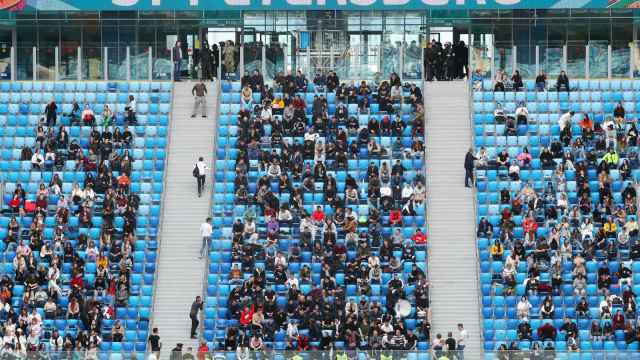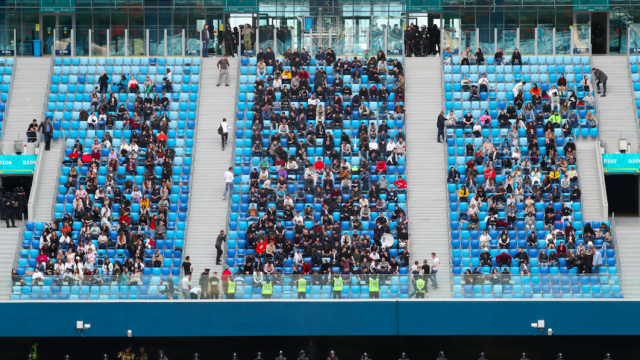The narrative of a “dialogue with Russia” has always been popular in Europe. It has been especially popular since 2014 when relations between Russia and the West started to dramatically deteriorate because of Russia’s illegal annexation of Ukraine’s Crimea and further invasion of eastern Ukraine.
The “dialogue” narrative is presented as the manifestation of a pragmatic and realistic approach to international relations. It is always presented in a positive light, as the antithesis to confrontation between Russia and the West. And, from a psychological and emotional point of view, isn't dialogue better than antagonism?
Indeed, peace and cooperation are preferable to strife and contention. European nations — who for centuries soaked European soil with each other’s blood, and invaded, pillaged and oppressed their neighbours — arguably know this best. This is why the European Civil War eventually gave way to European unity and the emergence of Western defence organizations.
Many European politicians, while insisting on the need for dialogue with Russia, recognise the fact that it is not easy. Talking to an Austrian radio station in May, Austrian Foreign Minister Alexander Schallenberg admitted that relations between the EU and Russia were “definitely tense and overshadowed,” but said that the EU wanted “channels for a dialogue” while maintaining that Russia was not interested in that.
Putin’s Russia is not simply uninterested in dialogue with Europe. The Kremlin believes that the EU does not deserve dialogue with Russia.
The only country that Moscow genuinely wants to have a dialogue with is Washington. Putin’s regime defines its place in the world through rejection of the U.S. global leadership and, simultaneously, through mimicking what it believes to be American behaviour in the international arena. Russia’s own subversive, yet often erratic, behaviour on the global stage can, to some degree, be seen as a continuous attention-grabbing stunt aimed at compelling Washington to ask Moscow for cooperation.
The most recent example of this is the unprecedented massive spring build-up of Russian troops along the Ukrainian border – a build-up that ended after U.S. President Joe Biden proposed a meeting with Putin.
With the accelerating global competition between Washington and Beijing, Moscow understands that its chances of being accepted as an equal pole in a multipolar world are dependent on Washington’s willingness to engage in dialogue with Moscow.
The EU, however, as seen from behind the Kremlin’s parapets, is no global player. Putin’s Russia does not define itself in relation to the EU. It is considered weak, indecisive and on the verge of collapse — a development that Moscow is happily trying to advance through support of anti-EU parties.
Putin looks at Europe with disdain. Western Europe is a shopping center that claims to have values and yet readily betrays them when duly paid. Post-socialist Central and East European countries are spineless vassals that traded Soviet masters for Western masters.
If one sees Europe this way, what is the point of engaging in dialogue with it? It makes more sense to talk to the puppeteer, that is the U.S., rather than the puppets who have no ambition for global leadership. Or you can simply buy influence.
Few are unaware of former German Chancellor Gerhard Schröder’s work for Russian energy companies – perhaps Moscow’s most successful acquisition to date — but Alexander Schallenberg’s own country Austria is arguably the leading European supplier of former officials to Moscow’s business and political projects.
Former Chancellor Wolfgang Schüssel (2000-2007) has been a member of the board of directors of the Lukoil energy corporation since 2019. Former Chancellor Alfred Gusenbauer (2007-2008) is a member of the supervisory board of the Russian organization “Dialogue of Civilizations” founded by former KGB officer and former CEO of “Russian Railways” Vladimir Yakunin to advance Russian foreign policy interests in Europe. Former Finance Minister Hans Jörg Schelling (2014-2017) has been an advisor to the controversial Nord Stream 2 project since 2018. Former Chancellor Christian Kern (2016-2017) has been a member of the board of directors of “Russian Railways” since 2019.
In addition to buying networks and the influence of former ministers, the Kremlin also invests in messaging what type of behavior from European politicians Moscow will reward.
This is the case for Austria’s former Foreign Minister Karin Kneissl. Before entering the federal government in late 2017, Kneissl was a lecturer and the ministerial position was her first political job. By the time the government collapsed after two-and-a-half years in power, Kneissl had acquired no political influence and no political network. Yet she used to make pro-Kremlin statements while still a minister and, after the resignation, published op-eds on the website of the Russian state-controlled RT TV channel.
This spring she was appointed an independent director on the Board of Directors of Russia’s Rosneft Oil Company. With an annual salary of $500,000 for the position of an independent director, the Kremlin is sending a message: you play by our rules, and we will reward even those of you who have neither network nor influence.
With Europe, it is negotiation over the price of someone’s influence and contacts, rather than political dialogue that Moscow believes to be the most efficient way of communication. Moreover, the Kremlin considers the very articulation from European politicians or officials of the idea of a need for dialogue with Russia as a sign of weakness, as a signal of readiness to sell out, whatever the real intentions behind voicing the idea are. In this sense, the narrative of “dialogue with Russia” turns into a self-unfulfilling prophecy.
An archetypal self-fulfilling prophecy is spreading rumors about the inevitable bankruptcy of a particular bank. The masses believe the rumors, lose trust in the bank and withdraw their assets from it, with the bank going bankrupt as a result.
The myth of “dialogue with Russia” is the opposite of that, it is a self-unfulfilling prophecy. When Europeans articulate it, the Kremlin strengthens its conviction that Europe does not deserve a dialogue.
Talking to the Kremlin and communicating with the Russian leadership is important. But it is enforcement of a dialogue, rather than the articulation of the need for one, that is likely to work.
The Czech Republic, which recently expelled more than a dozen of Russian diplomats after accusing Russian operatives of being behind the explosion of an ammunition depot in a Czech village of Vrbětice in 2014, is a good example of how standing up to bullying can enforce Russia to engage in a dialogue with a European nation, even a small one.
A Message from The Moscow Times:
Dear readers,
We are facing unprecedented challenges. Russia's Prosecutor General's Office has designated The Moscow Times as an "undesirable" organization, criminalizing our work and putting our staff at risk of prosecution. This follows our earlier unjust labeling as a "foreign agent."
These actions are direct attempts to silence independent journalism in Russia. The authorities claim our work "discredits the decisions of the Russian leadership." We see things differently: we strive to provide accurate, unbiased reporting on Russia.
We, the journalists of The Moscow Times, refuse to be silenced. But to continue our work, we need your help.
Your support, no matter how small, makes a world of difference. If you can, please support us monthly starting from just $2. It's quick to set up, and every contribution makes a significant impact.
By supporting The Moscow Times, you're defending open, independent journalism in the face of repression. Thank you for standing with us.
Remind me later.








